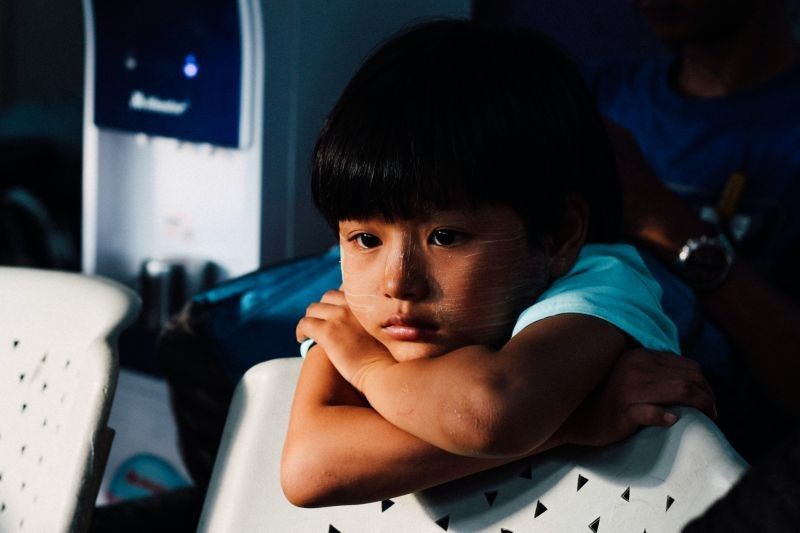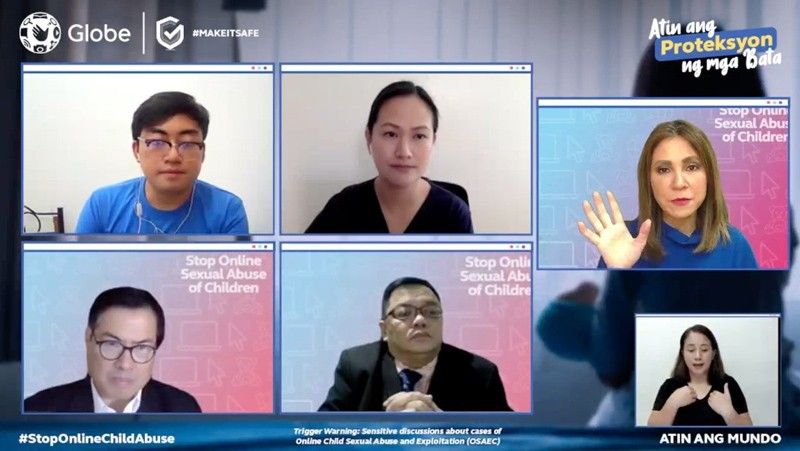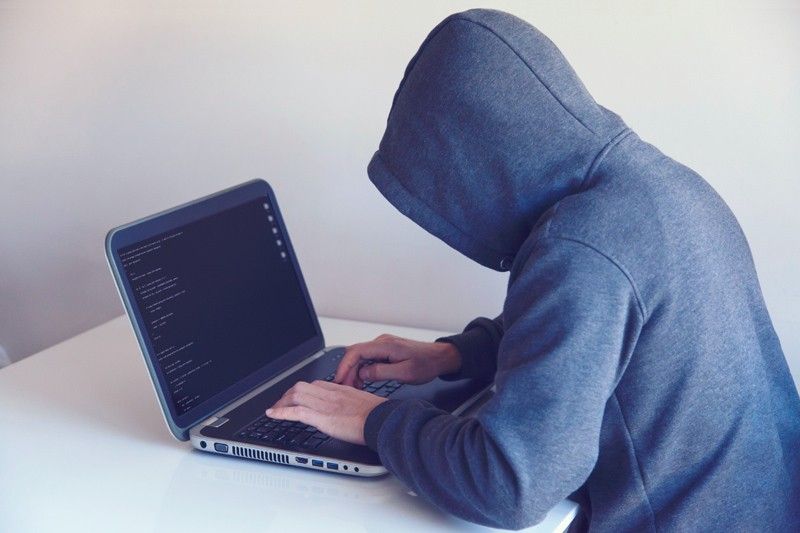It takes a village to raise and protect a child, especially online


MANILA, Philippines — One of the first things I did when I was ABS-CBN Bantay Bata 163’s program director was to visit a facility of the Department of Social Welfare and Development (DSWD) for the children they rescued from online sexual abuse and exploitation. I talked to some of these children and I could never forget the stories of siblings “Anna” and “Rosa” (not their real names) from Taguig, one of the identified hot spots for online child sexual exploitation. These siblings were rescued from their family who were the ones pimping them in exchange for money.
But they were not mad at their parents because they said they didn’t feel violated. After all, according to them, their naked photos and videos were “just shown online” and the “clients just watched these materials (via a webcam) and didn’t touch them physically.” They quoted their parents who had always told them, “No touch, no harm.”
So even though they were being sexualized in our eyes, for them, nothing wrong was done. “Anna” and “Rosa” were even mad at the police for putting their parents behind bars.
A few other rescued teenagers at the facility also narrated that they were not forced by anyone to expose themselves for money. It was a decision made on their own volition. For them, it was the easiest way to get paid to be able to have money to hang-out with their friends, to buy better things like mobile phones, to pay for their tuition and help in the family’s expenses, or to treat their peers because it’s their birthday.
But what really bothered me was their loss of self-love and self-worth. Instead of respecting their bodies, they have started looking at themselves as a cheap commodity.
Rising cases of online child sexual exploitation during the pandemic
In a webinar organized by Globe Telecom about Online Sexual Abuse and Exploitation on Children (OSAEC), DSWD representative, Emelita Bolivar admitted that it takes time to make the rescued children unlearn the wrong values they were taught by their parents.
She said, “Hindi nila naiintindihan at present yung impact ng nangyari sa buhay nila at sa kinabukasan nila... ang therapeutic activity na ginagawa namin sa kanila ay .. unlearning the distorted values that they learned like about sex, relationships… and learning new values… so mahabang panahon ang kailangan. Normally mayroon kaming time-bound case management na 6 months pero hindi yun sapat para maturuan mo yung mga batang magkaroon ng mas magandang pagtingin sa kanilang mga sarili… it really takes time.”
As UNICEF Child Protection Officer RA Villafranca confirmed, parents and family members are usually the ones victimizing kids as young as a few months old to 17 years of age. He added that cultural and social norms, like the belief that these incidents should be considered private family affairs, make it more difficult to stop online sexual child abuse. “May prevailing cultural norms na, ‘My child, my property, so it’s none of your business because this is my child.’”

It is therefore not at all surprising to see that the cases of OSAEC have tremendously increased during the pandemic, especially with the entire family staying at home 24/7 and with everyone spending more time using the internet. A report from the Department of Justice pointed to a 265% increase or 202,605 more cases of OSAEC in the first three months after the ECQ in March 2020.
Factors that contribute to OSAEC
RA clarified that OSAEC is any act of exploitative nature carried out against any child that has, at some stage of the abuse, a connection to the online environment. “The specific niche of OSAEC is its connection to the digital or online platform … it doesn’t necessarily involve physical contact with the child. For example, if a child is taking off his or her clothes and being live streamed or documented via video or photographed and shared online, that is still considered OSAEC even if there’s no sexual contact,” RA shared.
The panelists during the webinar were unanimous in stating that poverty is one of the major reasons why OSAEC happens. Parents or relatives make children do sexual acts or exploit them in exchange for money. It’s also poverty that changes people’s morals and ways of thinking, including how they take care of their family and the means to make a living. As the term goes, “Nagigipit kaya sa patalim kumakapit.”
Sadly, records show that the Philippines has become one of the world’s largest sources of child pornography and online child sexual exploitation. The country is an easy target because we are an English-speaking country and, since many of these perpetrators come from the West, the ability to speak and understand English is an advantage for this kind of unlawful trade.
We are also one of the biggest users of the internet in the world. Telecoms make it easier for a smart phone user to have access on internet data. Watching videos and looking at photos are within reach, same as making and uploading them. This is why manipulators and perpetrators can easily distribute these harmful files that can damage these children.
The lack of supervision of kids when it comes to using the internet is also a factor as to why wrongdoers can easily reach them. Parents need to leave their homes to work, putting in-charge either their household help, older children, or grandparents who may lack the needed supervising skills to monitor the internet use of these younger ones.
Parents’ role for online child safety
OSAEC is a serious and complicated issue that needs a multi-sectoral response. As child advocates like me always say, just as it takes a village to raise a child, it also takes a village to protect them. But I believe that it all still starts with the genuine love of their parents. If we truly love our children and want to keep them safe, we have to enter their world, including their digital world. We have to embrace and understand technology because only in embracing it will we be able to know how can we protect them, and what tips can we give them to keep themselves safe online.
Remind them never to give their personal details like their name, address, or age when a stranger online inquires.
Teach our children how to use the internet responsibly. Take the time to talk to them about the websites, apps, and games that they would like to visit and download. Explain to them how the internet can be both, useful and harmful, that’s why they have to use it properly and in moderation.
When someone tries to reach out to our kids online and would like to engage with them with the intention of having sexual activities, tell your children to immediately inform you about it. Listen to them intently and tell them not to be scared for telling you the truth. Emphasize that it’s not their fault that these perpetrators tried to communicate with them.

Educate yourself about the privacy settings of the gadgets, apps, and games that your kid is using. Restrict what he or she and other people can access. In some mobile applications and games, you need to create an account in order to be able to use or play with them. Ask your kids to create them with you so you can see which details they are giving. Always remind them never to give their passwords to anybody, even their closest friends. Attend webinars that would teach you how to further protect your kid’s privacy online like Globe’s Gabay Bahay: An Online Parenting Series initiative.
Continuously practice open communications with your child. If you can explain to them how consent works, sexual exploitation, and abuse in a way that they could properly understand, do so because this information would help and keep them safe. Also learn how to recognize a sudden change in your kid’s behavior like if they start keeping secrets and attempts to hide their online activities. Should these things happen, sit them down for a one on one.
If you know of minors being subjected to online sexual exploitation and abuse, seek help from the authorities. According to Atty. Tim Abejo of Citizen Watch, there is still no law protecting whistleblowers and, unfortunately, they are on their own. But we are duty-bound to report these kind of improper actions that could ruin a child’s life
For more tips on how to maintain your child’s safety online, watch our Pamilya Talk episode below.
To report cases of online child sexual abuse and exploitation, call:
Actionline Against Human Trafficking: 1343 for Metro Manila; (02) 1343 for outside Metro Manila
Bantay Bata 163: 163
Philippine Red Cross: 143
National Emergency Hotline: 911
PNP Aleng Pulis: 0919 777 7377
UP-PGH COVID-19 Bayanihan Operations Center: 155 200
These hotlines can be seen at https://www.saferkidsph.org/help-stop-osaec/#report .
* * *
Watch Pamilya Talk on Facebook, YouTube, and Kumu (@JingCastaneda – 6:00-7:00pm Monday, Tuesday & Wednesday). You can also follow my social media accounts: Instagram, Facebook, YouTube, Twitter, and Kumu. Please share your stories or suggest topics at editorial@jingcastaneda.ph.


















